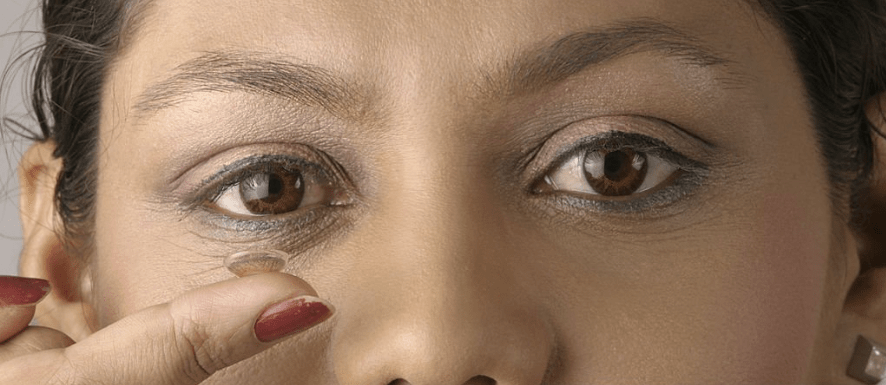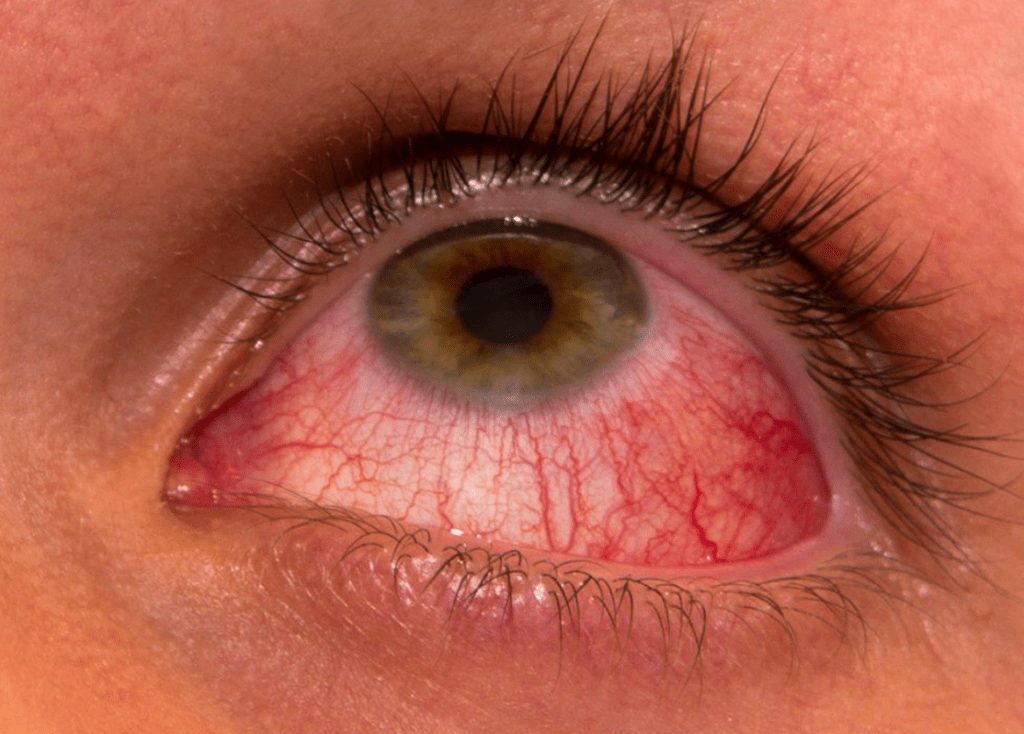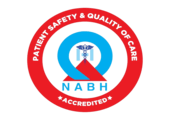Contact Lens Related Problems and Safety Tips:
Contact lenses are an alternative option to see clearly, for those who do not want to wear spectacles or do not want to undergo/ not eligible for laser correction of their spectacle power. Contact lenses provide better field of vision (no edge effects due to the spectacle frame) and move with the eye. They do not fog up or result in reduced visibility in the rain like spectacles. They offer better cosmesis and are more practical for sports and outdoor activities than glasses.

However, like two sides of a coin, contact lenses have their own set of problems if they are not judiciously used or strict hygiene and care is not maintained. So, depending on the patient most appropriate option among glasses, contact lenses and laser vision correction can be chosen.
Some of the common problems associated with contact lenses will be discussed in the next section:
Dry Eye
Contact lens users can have dry eyes after long term usage even if they have no symptoms. The symptoms of dry eye become more prominent with associated increased screen time. The symptoms of dry eye are
- Discomfort in eyes
- Foreign body sensation or gritty eyes
- Redness of eyes
- Excessive watering
- Sensitivity to light and glare
Dry eyes can be treated with preservative free lubricant eye drops, which can be used over the contact lenses also.
Eye Allergies
Some of the contact lens wearers may suffer from eye allergies. Accumulation of debris and protein in the contact lenses may cause allergy in the eyes. So, habit of soaking the contact lenses in fresh solution helps by reducing the protein deposits. Some people may suffer from allergies to the contact lens cleaning solution. To avoid and manage allergies, make sure you clean your lenses regularly. You may even want to discuss with your doctor if you can switch to daily disposable lenses or change your contact lens cleaning solution. If required, your eye doctor may prescribe anti-allergy eye drops, and recommend a brief period of no contact lens.
Discomfort, especially after a day-long use of lenses
Initially when one starts wearing contact lenses, discomfort is usual, as the eye gradually adapts to the foreign object. So, ophthalmologists usually ask you to start with wearing the lenses for a few hours, and gradually increasing the duration of lens usage to 8 to 10 hours per day. In case the discomfort persists, you must get your eyes checked by the prescribing doctor to see if the lens is a good fit for your eyes or if you will benefit from shifting to another class of lenses, with a higher oxygen permeability. Typically, silicone hydrogel lenses and soft lenses are more comfortable, but rigid gas permeable or RGP lenses come with the added advantages of offering correction of significant astigmatism and irregular astigmatism in conditions like keratoconus.
Eye Makeup with Contact Lens
For people who wear contact lenses, makeup particles can stick to the contact lenses, and be more difficult to clean the contact lenses.
Below are some tips to help you wear your eye makeup:
- Make sure you wear your contact lenses before applying makeup. In case you have used a facial cleanser, cream or toner, make sure you clean your hands thoroughly with soap and water to avoid any risk of contamination.
- It is wiser to invest in a trusted brand which is known to be hypoallergenic than to end up with swollen eyes.
- Also, check the best before or expiry date on your eye makeup. Make sure you make a note of the day you opened the seal on the product. Most mascaras and eyeliners should be discarded three to six months from the date of opening, even if not past the date of expiration, to avoid the risk of eye infections.
- Cream eyeshadow is safer to use when wearing contact lenses. If you decide to wear a powder eyeshadow, make sure you close your eye when putting it on.
- Never apply eyeliner or kajal/ kohl on the waterline, that us between your lashes and your eye. Even homemade kajal or that made by your grandmother using ghee is not safe enough for use inside the eye.
- To remove eye makeup, wash and dry your hands. Then remove your contacts, being careful not to bring them in contact with makeup. Finally, use your eye makeup remover.
- Make sure you don’t share your eye makeup with others to avoid infections and cross contamination.
Infections
The most significant and dangerous concern with contact lenses is the increased risk for eye infections. These can range from mild eye infection to more severe vision-threatening eye ulcers. It is, therefore, better to be very careful about hygiene in handling contact lenses. The following are some dos and don’ts to ensure eye health in contact lens users. Daily disposable lenses carry a lesser risk of infections.

Safety Tips for Contact Lens Usage
- Strict hand hygiene
- Make sure to disinfect and contact lenses and lens storage cases as per your eye doctor’s instructions.
- Make sure your lenses are discarded and replaced periodically over 3 to 6 months
- Do not wear them for longer durations than allowed by your doctor. Discuss extended wear of lenses if you think you need to wear them for longer durations.
- Don’t use tap water instead of lens cleaning solution to clean or store your lenses.
- Don’t top off old solution in your contact lens case. You must discard the old solution, clean the lens case and replace it with fresh solution every time. Also, make sure your contact lens cleaning solution is not past its expiration date.

In case of redness, pain, discomfort, sensitivity to light more than usual or any purulent discharge from the eyes, or decrease in vision, you must contact your eye doctor immediately. These could be signs of an eye infection or even an injury to the cornea.
Related Topics:






